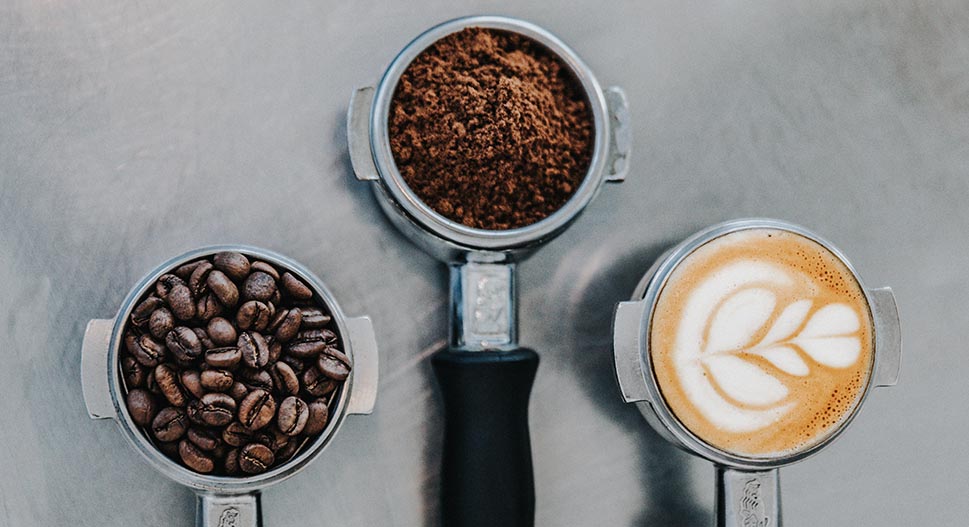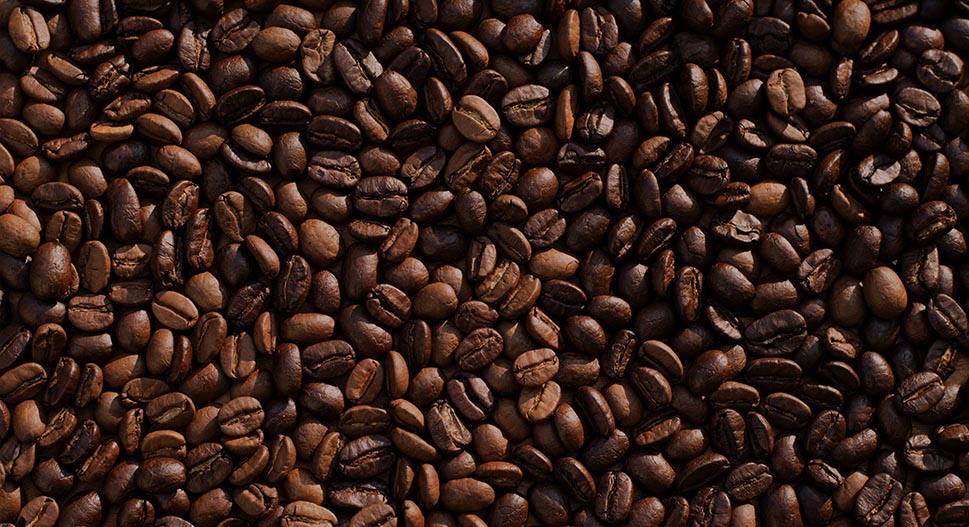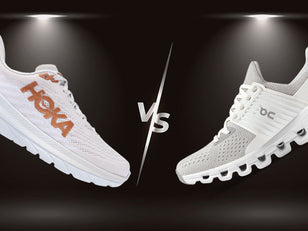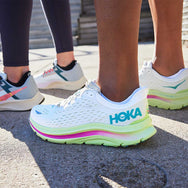
Ah, coffee. Whether it’s a quick one in the morning or one that you get on-the-go… it’s hard to imagine mornings without it. The good news is that more and more research is showing that your brew has many health benefits that go beyond the morning caffeine perk-me- up.
What is in coffee?
Most of the focus on coffee has been about the caffeine it contains. However this is now changing as there is much more to it! Of course it’s still important to keep your caffeine intake in check (see recommended intakes below). But interesting, coffee also contains a number of other great nutrients.
The nutritional highlights of black coffee are as follows:
-
Only 1-2 kcal per 100ml
Black coffee contains no significant amounts of fat, carbs or protein and therefore is very low in calories. Obviously the addition of milk, flavoured syrups and sugars changes its nutritional content
-
High in micronutrients
Key micronutrients found in coffee include potassium, magnesium and niacin
-
Rich in antioxidants and diterpenes
These contribute not only to the unique flavour of coffee, but also to the well researched physiological effects of coffee

Caffeine recommendations
Daily caffeine limits:
- Pregnant women = 200mg
- Everyone else = 400mg
How much caffeine does your drink contain? (3):
- 1 mug of instant coffee: 100mg
- 1 mug of filter coffee: 140mg
- Double espresso shot: 125mg
Different countries, different coffees
In the last few decades there seems to have been a huge swing in favour of coffee consumption. It used to get featured in the press for being bad for us, interrupting our sleep, making our hearts pound in a bad way and increasing the risk of heart disease.
One reason for the shift away from these negative effects is that the initial studies were based on coffee once popular in Sweden, which was made by boiling ground coffee. It’s suggested that this type of coffee contains unusual types of fat (in the coffee) that can alter the way our body uses fats and cholesterol, which in turn could increase the risk of heart disease. Over the years, this type of coffee has become less popular with the rise of people drinking other types of coffee such as espresso.
So the way that coffee is made seems to have a big impact on how healthy coffee is. Different beans and different ways of roasting and brewing will certainly influence its impact.

5 reasons why coffee is good for you
In the right amount, coffee may be good for you because:
-
It protects your liver
Research shows that coffee drinkers (regular and decaf) are more likely to have liver enzyme levels within a healthy range than people who don’t drink coffee Many studies have also shown that drinking coffee can also protect against liver fibrosis.
The exact mechanism behind coffee’s protective role are not understood but it is thought that caffeine may be involved. One of caffeines’ main metabolites (called paraxathine) is thought to slow down the growth of scar tissue involved in fibrosis.
In addition, coffee is an excellent source of antioxidants which may also help protect cells from damage.
-
It feeds your gut bacteria
A cup of coffee contains about half a gram of fibre! The fibre isn’t quite the same as found in wholegrains but are some small soluble compounds called phenolics. These phenolic along with the caffeine what are thought to give coffee its bitter taste are gut bacteria friendly.
This may be the reason why in one recent study showed that coffee drinkers were 26 percent less likely to develop colorectal cancer.
-
It lowers your blood pressure
Coffee is a rich source of potassium which is linked to lower blood pressure. That said, people with kidney disease may need to lower their coffee intake as usually people add milk which increased the potassium content even more.
-
It boosts brain function
Many other studies in humans have shown that coffee improves memory, mood, alertness reaction times and general mental function. The reason behind this is that caffeine binds to your brain’s adenosine receptors, preventing adenosine from binding with the receptors and making us tired. Caffeine also has the effect of speeding things up in the brain making you more alert to learn. However, the effects aren’t long lasting. Studies show that dopamine (the neurotransmitter that gets to work to make you more productive) exerts its effect for up to an hour after consumption.
-
It increases your chance of living for longer
Coffee is one of the richest dietary sources of chlorogenic acids. These compounds are powerful antioxidants. The antioxidant and anticancer effects of these and other compounds, along with anti-inflammatory and antibiotic potential, have led researchers to examine coffee's impact on all-cause mortality, cancer, cardiovascular and metabolic diseases, as well as diseases of the neurological, musculoskeletal, and gastrointestinal systems, and the liver.

Can coffee improve your workout?
The interest in caffeine as an endurance ergogenic aid started in the seventies. The first study looked at the effect of ingesting 330mg of caffeine 1 hour prior to cycling to exhaustion at 80% of maximal oxygen consumption (VO2 max) in comparison to a placebo.
The results showed that the cyclists improved performance from 75 minutes in the placebo condition to 96 minutes following caffeine ingestion. A second similar study showed that 250mg of caffeine was associated with a 20% increase in the amount of work performed in 2 hours.
Since then, research to date suggests that a wide range of active people and sporting situations may benefit from caffeine including:
- Team or intermittent sports
- Endurance sports
- High intensity, short duration sports
Caffeine’s main effect on the body during performance was first thought to be linked to its mobilising of fatty acids. However we now know that this is unlikely to be the case. Its power lies in its ability to alter the rate of perceived effort or the level of fatigue. Exercise doesn’t feel as hard or doesn’t hurt as much.
Current recommended doses are 1-3 mg caffeine per kg body weight (e.g. 70-210mg in a 70kg athlete). Research looking at timing of ingestion reports that peak levels are found within the blood in blood plasma between 30 and 60 minutes from ingestion, depending on the person.
However coffee is not the recommended vehicle of consumption for performance, as the amount of caffeine in a given amount of coffee varies widely and isn’t reliable in dosing.
Conclusion
We all respond differently to coffee based on our genetic makeup. If you enjoy its taste and tolerate its caffeine content, then don’t hesitate to pour yourself another cup (while keeping within the recommended levels of course!).
However, if you are a person who doesn’t tolerate caffeine well, then there is no need to start drinking it. Focus on the many other positive dietary and lifestyle factors that have a positive impact on your health.

References:
- FSA. (2004) Survey of caffeine levels in hot beverages. London: Food Standards Agency.
- Rocz P.2012. Caffeine – common ingredient in a diet and its influence on human health. Rocz Panstw Zakl Hig. 63
- Food Standards Agency Uk. Caffeine consumption in pregnancy.
- Poole R, Kennedy OJ, Roderick P, Fallowfield J, Hayes PC, Parkes J. 2017. Coffee consumption and health: umbrella review of meta-analyses of multiple health outcomes. BMJ.359:j5024.
- Park S, Freedman N, Haiman C, Le Marchand L, Wilkens LR, Setiawan V. 2017.Association of coffee consumption with total and cause-specific mortality among nonwhite populations. Ann Intern Med. 167(4):228-235
- Rodríguez-Artalejo F, López-García E. 2018. Coffee consumption and cardiovascular disease: a condensed review of epidemiological evidence and mechanisms.J Agric Food Chem
- Lyngs J, Ramlau-Hansen C, Bay B, Ingerslev H, Hulman A, Kesmodel U. 2017. Association between coffee or caffeine consumption and fecundity and fertility: a systematic review and dose-response meta-analysis. Clin Epidemiol. 9:699-719.
- Costill D et al. 1978. Effects of caffeine ingestion on metabolism and exercise performance. Med.Sci. Sports. 10. 155 -158
- Ivy et al 1979. Influence of caffeine and carbohydrate feedings on endurance performance. Med. Sci. Sports. 11.6 -11
- Sports dietitian Australia. Caffeine fact sheet.
- Bortolotti, H., Altimari, L. R., Vitor-Costa, M., & Cyrino, E. S. (2014). Performance during a 20-km cycling time-trial after caffeine ingestion. Journal of the International Society of Sports Nutrition, 11(1)
- Bell, D. G., & McLellan, T. M. (2002). Exercise endurance 1, 3, and 6h after caffeine ingestion in caffeine users and nonusers. Journal of Applied Physiology, 93(4), 1227-1234. Retrieved from SCOPUS database





























































